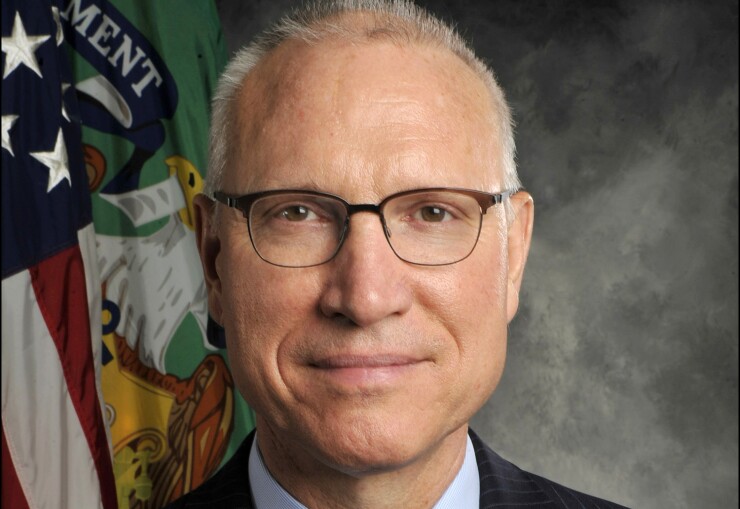The municipal tax-exemption is again at heightened risk as Congress looks to draft tax reform legislation for President Trump by later this month, speakers told a packed meeting of the Municipal Bond Club of New York.

Though the industry has received assurances from the administration that the tax break will be preserved, the Government Finance Officers Association got mixed signals in recent talks with 46 members of Congress, said Emily Brock, director of the group’s Federal Liaison Center. The muni tax-exemption has been under fire since its inception in 1913, and Sen. Orrin Hatch, R-Utah, chairman of the Senate Finance Committee, left the exemption off a short list of tax breaks that won't be on the table during the current tax reform effort.
“The best thing you can do is to continue preaching about how important municipals are for the local communities,” Brock said at the meeting Wednesday. “Keep pushing your local and state finance officials to tell the Hill the impact munis have; the more they hear the better.”
On a positive note, Brock said she felt lots of love for munis from Congress earlier this year during discussion of including them on a list of High Quality Liquid Assets for banks, a measure that still needs to move through the House floor.
“There is no one in Treasury who comes into work every day and thinks ‘how can I take down munis?’ But the simple fact remains that munis are a tax expenditure whether we like it or not,” said Kent Hiteshew, former director of the Treasury Department’s office of State and Local Finance.

“We have been arguing about this issue for 100 years,” he said. Now “they are trying to raise revenues and need to balance the budget. Munis are on a list along with everything else and they all have a score. They are trying to treat everything the same.”
He also said munis are seen by some as a benefit primarily for wealthy people
“From a political point of view — munis will survive and that is my own opinion,” he said. “However, the most crucial thing to do is for the leaders of state and local governments to go on the hill and express their passion for how important munis are to communities.”
The pressure to identify loopholes is heightened because Republicans are pressing extra hard to score a legislative victory with tax reform, said William Daly, director of government affairs at the National Association of Bond Lawyers.

“Because healthcare isn’t going through, the Republicans have to get a win somewhere,” he said. “But when it comes to the question at hand, I think it depends what you are talking about. If you are talking about infrastructure, then [the tax break] is a lifeline. Two-thirds of our infrastructure comes from state and local governments, and I would even argue there are some rules now that are too restrictive [when it comes to munis] and could be expanded in certain cases, like with public-private partnerships.”
The MBCNY, in existence since 1932, aims to keep members and other municipal professionals informed on current industry topics which will affect them directly and try to get them involved in finding solutions to issues the industry is facing.
“One of principal responsibilities of The Municipal Bond Club of NY is to keep our members informed about how current issues can affect their job and the industry as a whole,” said Jerry Brennan, past president MBCNY and senior municipal evaluator, ICE Data Services. “I felt we accomplished our goal last night.”
Patrick McCoy, director of finance at New York’s Metropolitan Transit Authority, with $37 billion in outstanding debt and a mission to get people to and from work in the one the world’s largest urban areas, had a simple message for lawmakers.

“Muni bonds are our best way to enhance and improve our system,” he said. “Don’t harm or take away our most vital tool.”





